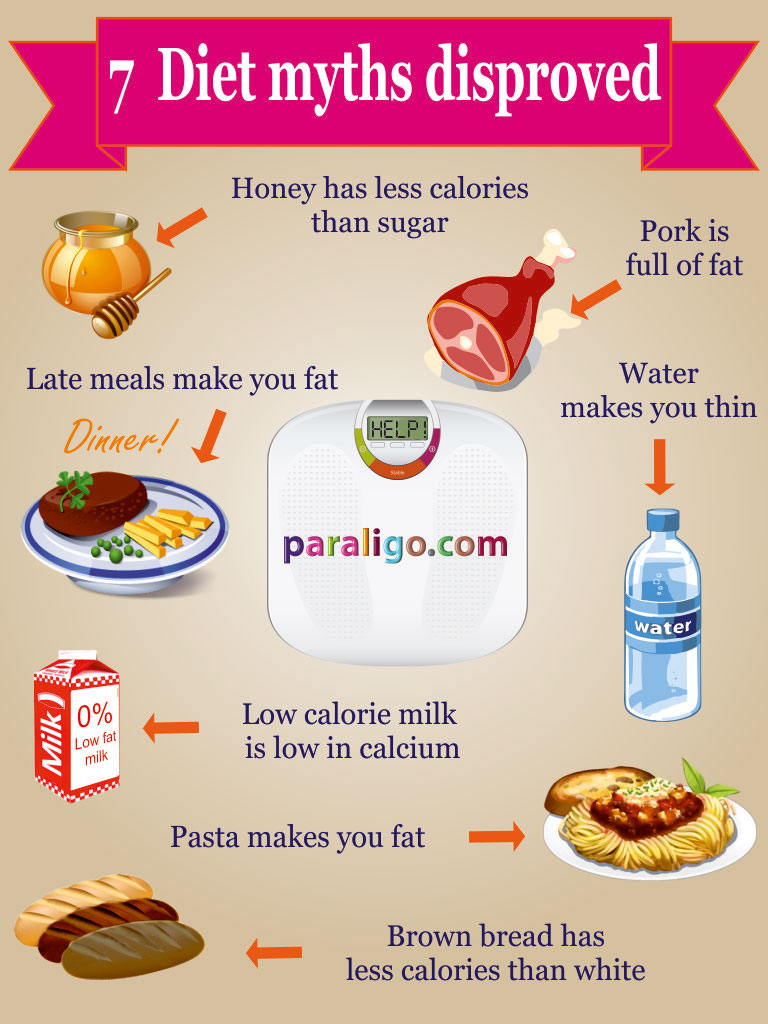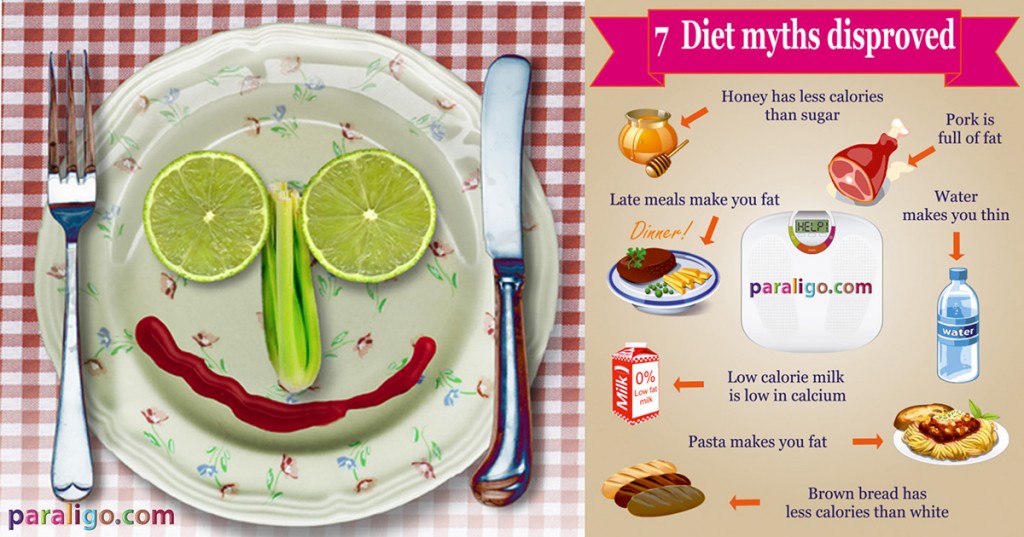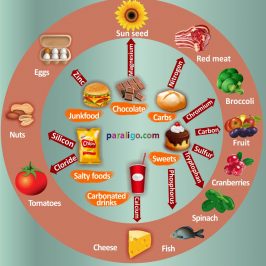Yes vacation time is over and yes the majority of people try to lose weight before they go on vacation, but recent research shows that a great percentage of vacationers find they have to start a diet when they return home. If this is your case here are 7 diet myths disproved that you need to know about!
Honey has less calories than sugar
1 tsp. of honey contains the same calories (~ 40 Kcal) with 1 tsp. of white sugar (39,4 Kcal), but more than 1 tsp. of brown sugar (27 Kcal).
Pork is full of fat 
The fat content of pork depends on which part of the animal comes from. So ham contains 24 g fat/100 g, a pork chop 19g fat/100g while the tenderloin contains only 11g fat/100g, which is about the same with 100g of skinless chicken. What makes pork unhealthy is the fact that the majority of the fat it contains, is saturated.
Water makes you thin
Human body needs an intake of 2 – 2,5 liters of Water a day, to stay healthy, but water doesn’t burn calories or boosts metabolism. What water can do for you, is save you a lot of calories if you drink it, instead of sugary drinks.
Pasta makes you fat
1 cup of cooked spaghetti (200gr) has a calorific value of 234 Kcal as boiling reduces the rate of carbohydrates and increases water content. What ejects the caloric value of a dish of pasta, is sauce and cheese.
Brown bread has less calories than white
A thin slice of white bread (30 g) has 64 Kcal, a 30g slice of 100% wholemeal brown bread, has 67 calories and a similar slice of 85% wholemeal brown bread, 65 calories. They also contain similar percentages of vitamins and minerals. What is actually different is their fiber content with brown bread containing twice the amount of fibers white bread does.
Low calorie milk is low in calcium
The removal of fat from dairy products only affects their content of fat and of soluble vitamins (mainly A), while calcium content is constant and in the case of milk, amounts to 120 mg calcium /100g.
Late meals make you fat
Weight loss, depends on negative calorie balance which results from the total of calorie intake throughout the day, in relation to physical activity, regardless of the time of intake.







